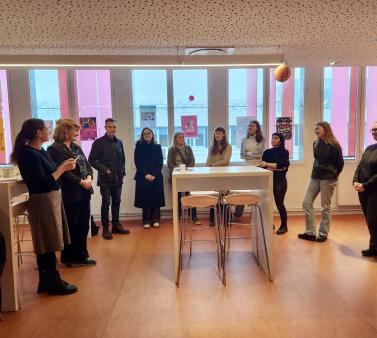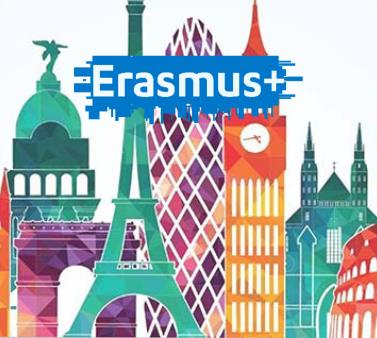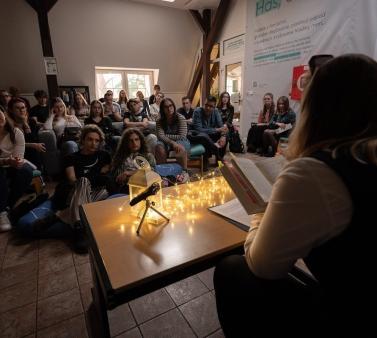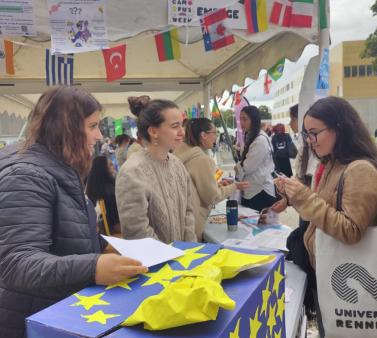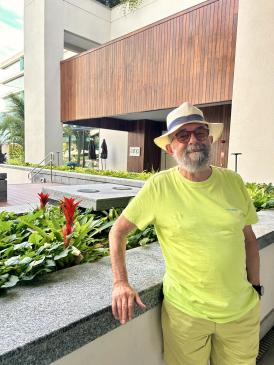
To begin, how did your passion for South America and its culture develop?
I was born on the Atlantic coast in southern Morbihan. As a child, in my small village, there were old sailors who would tell us about their adventures. At the end of the 19th century, two brothers had sailed around Cape Horn. Their stories of Buenos Aires, Tierra del Fuego, and Valparaíso sparked my imagination. I thought to myself: "One day, I’ll go to South America too." I was barely ten years old.
Later, in 1970—at a time when utopias still existed and people believed the world could be changed—I went to Bolivia to lead the Alliance Française in Santa Cruz de la Sierra for two years. During my stay, I also traveled to Brazil to conduct research for my state doctoral thesis. It was a pivotal period: not only did I have responsibilities in Bolivia, but I was deeply engaged in local public and political life. I even got to know Jaime Paz Zamora, who later became President of Bolivia—his son has just been elected to the same position.
From the start, I had a strong connection with the Andean countries and Brazil, which I chose as the main focus of my work, and that has never changed. Latin America is a vast cultural mosaic, shaped by ancient civilizations largely destroyed by Spanish and Portuguese conquerors. This diversity is reflected in all areas, not just literature. I’ve always tried to share this passion through my writings and publications.
You were a student in Rennes before Rennes 2 University was even established. What memories do you have of that time?
I began my studies at Place Hoche, where the Faculty of Economics is now located. In May 1968, we witnessed the creation of Rennes 2 University. At the time, we didn’t want to destroy the university but to transform it. I was quite involved as a student representative, alongside Jean-Yves Le Drian—who later became a friend—and many others.
In the 1970s, Rennes 2 was already a vibrant place: the movements were not violent but intellectually dynamic. There were remarkable teachers, some of whom later became professors at the Collège de France, and a genuine mutual respect. We had colleagues of the caliber of Mario Soares, Milan Kundera, and Dominique Fernandez. It was intellectually and culturally stimulating, and both teachers and students played an active role. During the military coups in Latin America, we hosted Chilean refugees at Rennes 2 and organized events in support of struggles against dictatorships in Bolivia, Brazil, Argentina, as well as Portugal and Spain.
Initially, my studies at Rennes 2 focused mainly on Spain, but I was already interested in South America, and it seemed unthinkable not to learn Portuguese—the language of 40% of the continent’s population. At the time, studying conditions were very difficult: no financial aid, no research grants, no Erasmus program. I decided to write my thesis on Brazilian literature, but I had no funding. To travel, I worked with the association Nouvelles Frontières, which aimed to make travel accessible to everyone. I was in charge of the Latin America sector, training guides and creating itineraries—which allowed me to travel and conduct my research in Brazil. It was a tough but exciting time.
The city of Rennes and Rennes 2 University have a special relationship with the Portuguese language, of which you have been a key figure. Can you remind us of the milestones in this journey?
In the early 1970s, Portuguese language education was almost nonexistent in France. As early as 1922, Rennes was the second city in the country to offer it, after the Sorbonne. It all started with a former Portuguese Republican soldier who fell in love with a Breton woman and came to teach here. The real development began in the 1960s, thanks to Georges Boisvert, followed by Jean-Michel Massa, also a professor of Portuguese and Brazilian literature and civilization. I joined their team upon my return from Bolivia in 1971-72. While I was still in Bolivia, Rennes 2 had hired Mario Soares, then a political refugee and future President of Portugal, with whom I had the pleasure of working until his return to Portugal following the 1974 Carnation Revolution.
We also co-founded the ADEPBA (Association pour le Développement des Etudes Portugaises, Brésiliennes, de l'Afrique et de l'Asie lusophones) and contributed to the creation of the CAPES and the Portuguese language agrégation. It was a real mission of persuasion: we had to demonstrate the importance of linguistic diversity at a time when Portuguese immigration was strong—by 1975, the Portuguese community in France had reached 750,000 people. Our goal was to ensure that, in every academic region, there would be schools offering Portuguese. Rennes 2 played a major role in this promotion and was also a pioneer in developing studies on Portuguese-speaking African writers.
Moreover, there has always been a strong link between Rennes and Brazil: for example, the Breton geographer Francis Ruellan founded modern geography studies in Rio de Janeiro, then the federal capital, before returning to teach in Rennes. His son later donated his Brazilian library to Rennes, now preserved at the university library (F. Ruellan Collection).
You were elected in May to the Brazilian Academy of Letters. How did you feel about this prestigious appointment?
Founded at the end of the 19th century on the French model, the Academy has 40 members and 20 foreign corresponding members. I was elected to the seat previously held by Mario Vargas Llosa, the great Peruvian writer who recently passed away. It is a tremendous honor and a great pleasure, especially since I was elected unanimously. It is a recognition of the work I’ve done over the years. In a way, the culmination of a long journey that began even before the Carnation Revolution in Portugal or the fall of the military regime in Brazil.
What duties and missions await you as a foreign correspondent of the Brazilian Academy of Letters?
It won't be a departure from what I'm already doing: promoting Brazilian writers and their works in France and Portugal, where I spend a large part of the year. I’ve had this experience before, notably as cultural advisor in Buenos Aires and São Paulo, and also at the Ministry of Culture under Jack Lang. At Rennes 2, the Portuguese department has had the honor of hosting many Brazilian writers and men of letters, including Antonio Torres, Antonio Carlos Secchin, and Godofredo de Oliveira Neto. I will continue in this vein: helping to make Brazilian literature known and supporting the translation of their works. For example, the work of Ana Maria Gonçalves, an outstanding Afro-Brazilian academician, would greatly benefit from being translated into French.

